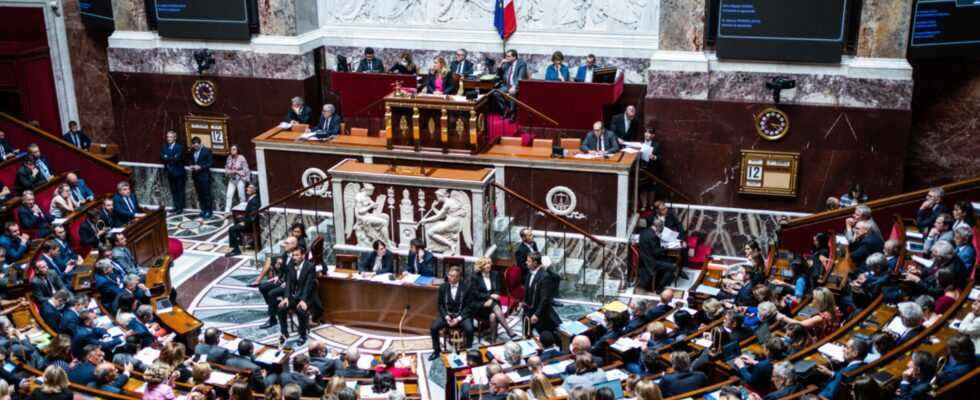The deputies voted on Wednesday evening the revaluation of 4% of pensions and social benefits, but also deconjugalized the Disabled Adult Allowance (AAH) in a rare moment of unanimity since the beginning, laborious and conflicting, of the debates in the Assembly on the purchasing power bill.
296 votes for
The article of revaluation recorded 296 votes for, 103 abstentions and two votes against – the latter issued by two socialist deputies. It will take effect from July 1, 2022, retroactively, without waiting for the annual automatic revaluation date.
In detail, this measure notably concerns retirement and disability pensions from the basic schemes, already automatically increased by 1.1% in January.
The Nupes largely abstained on the revaluations
Also affected by this measure, family allowances and social minima, namely the active solidarity income (RSA), the AAH, the solidarity allowance for the elderly (Aspa) and scholarships based on social criteria for students. Some of these social benefits had already increased by 1.8% in April.
The groups of the left alliance Nupes largely abstained, on the revaluations, which according to the deputy LFI Adrien Quatennens “endorse reductions in purchasing power” because “below inflation”. The budgetary effort granted for pensions and social benefits “does not correspond in any way to the reality of inflation in our country”, for her part reacted the deputy Rassemblement national Laure Lavalette.
The deconjugalized AAH, an old request
The evolution of the AAH, a flagship measure of the purchasing power bill, was unanimously adopted overnight after several refusals from the executive during the previous legislature. The deputies of all the groups had tabled amendments so that the income of the spouse is no longer taken into account for the calculation of this benefit, a measure demanded for a long time by the oppositions and associations.
Created in 1975, the AAH is intended to compensate for the inability to work. With a maximum amount of 904 euros per month, it is paid on medical and social criteria. It now has more than 1.2 million beneficiaries, including 270,000 couples, for an annual expenditure of around 11 billion euros.
In addition to these upgrades, the government’s plan provides for measures to ensure the country’s energy supply – a subject promising lively discussions with the left.
The debates, tense and progressing very slowly, must end on Thursday, the deputies having to continue with the draft amending budget for 2022 which must ensure financing and complete the arsenal in the face of inflation. “The battle will be even more fierce, because there are major budgetary choices there,” we predict at the PS group.
The Assembly will sit for this until Saturday evening, or even Sunday, anticipate several elected officials, in order to complete this first reading of the purchasing power package, and to pass the ball to the Senate, with a view to final adoption on 7 august.
The key topic of fuel on the table
At the same time, negotiations are going well. First with the LRs, whose votes are precious in the Assembly as in the Senate, and which could allow the majority not to have the only support from the RN deputies.
An agreement is thus in sight between the executive and the right-wing deputies on the key subject of fuel (in the amending budget), in order to slightly increase the current rebate of 18 cents per litre, but by waiving the fuel allowance for low-income workers and heavy-duty riders.
The Nupes left denounces for its part the absence of “compromise” around its proposals. With a series of indignant reactions on Tuesday evening when Christine Le Nabour (LREM) launched to the ecologist Sandra Regol: “We never said that we wanted to compromise with you”.
The macronists claim, however, to show openness, with PS amendments adopted in committee on the energy component. And they praise the “gathering” of political forces around the deconjugalization of the disabled adult allowance (AAH), without taking into account the income of the spouse – a measure refused under the previous legislature.
No agreement, however, on the taxation of the superprofits of large groups, an idea pushed by the left, the RN and even LR and a dozen LREM. “It is better to pay less expensive gasoline right away to go on vacation” rather than “to hope for the proceeds of a tax in a year”, replies Aurore Bergé.
On July 14, Emmanuel Macron said “yes” to a contribution but “not in demagoguery”.
